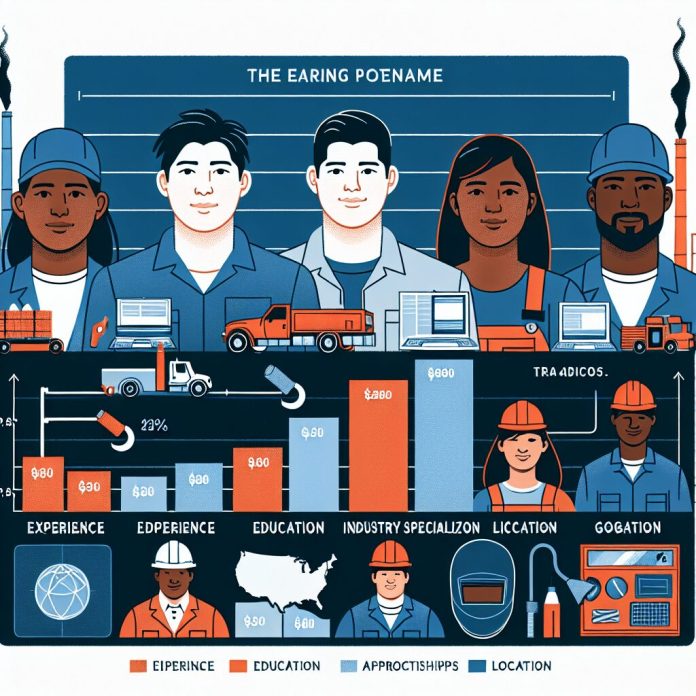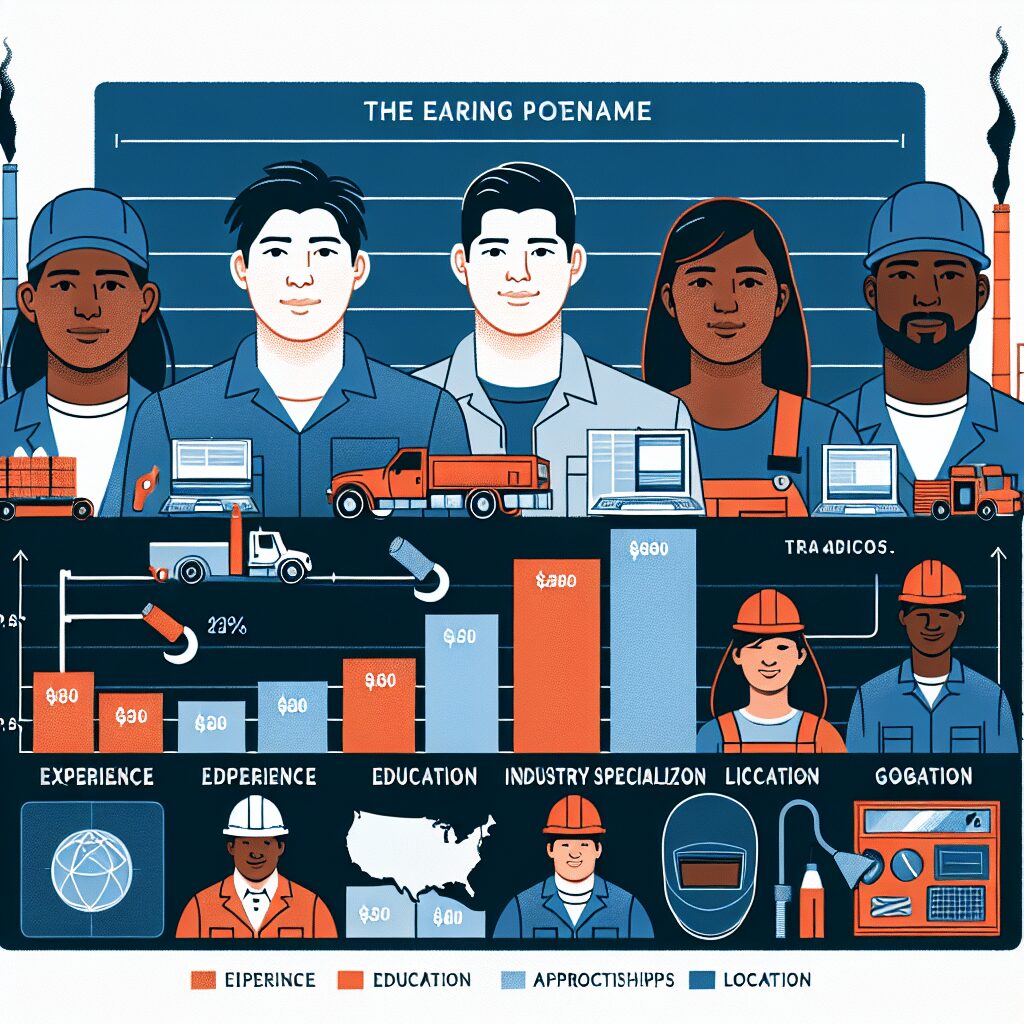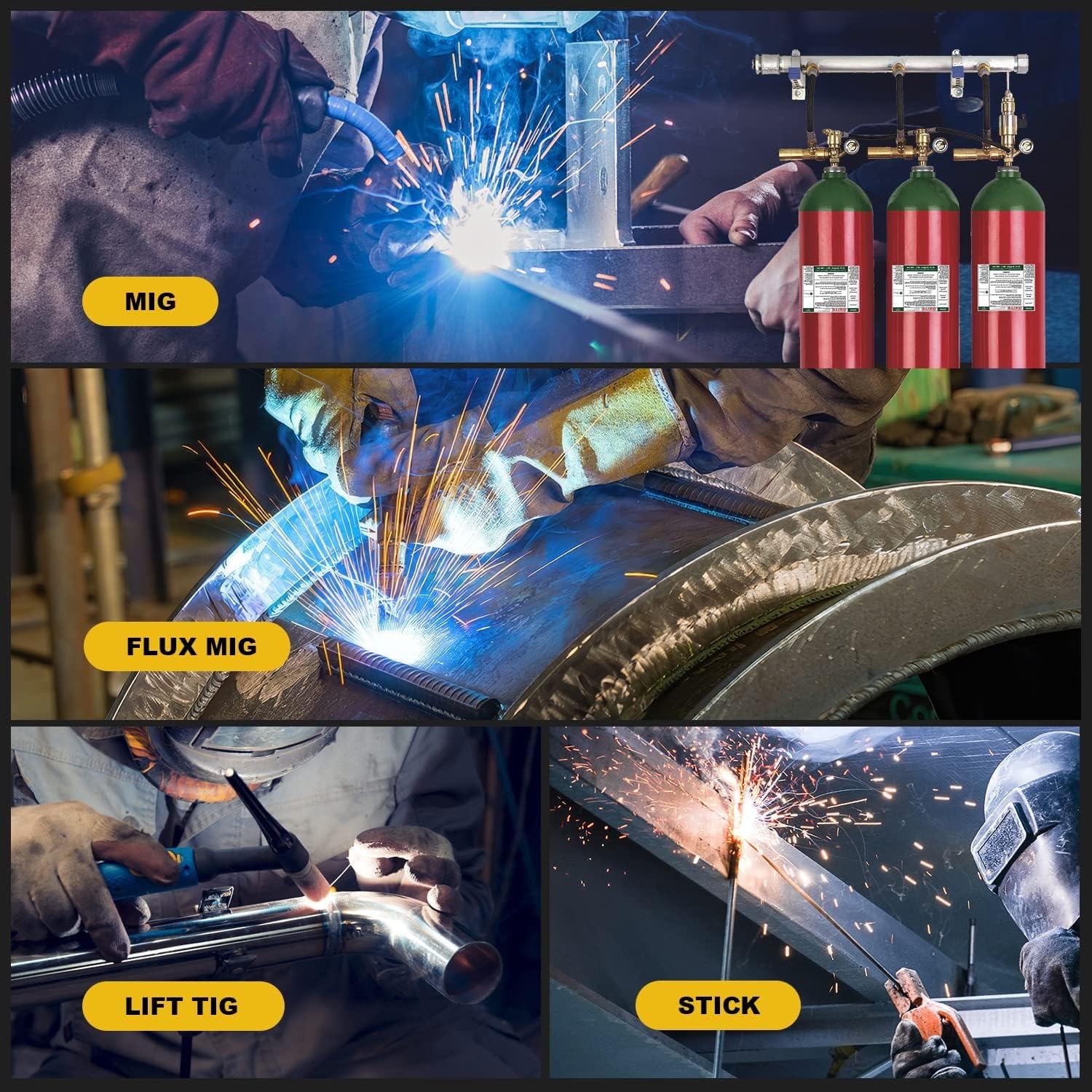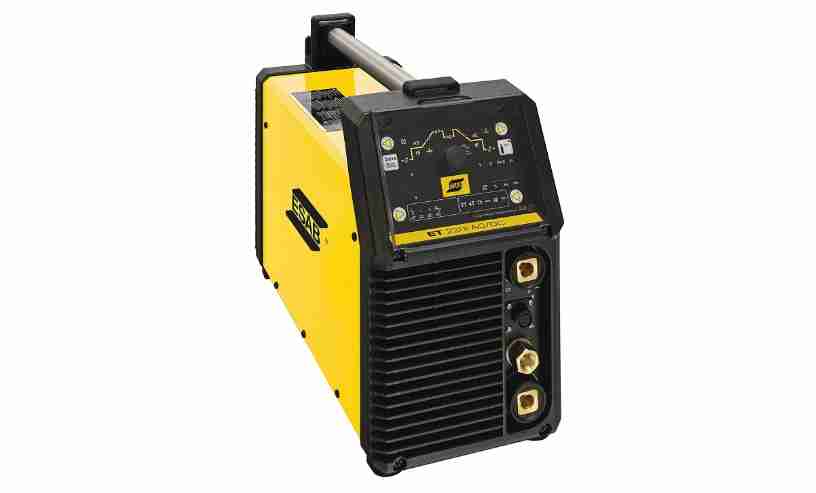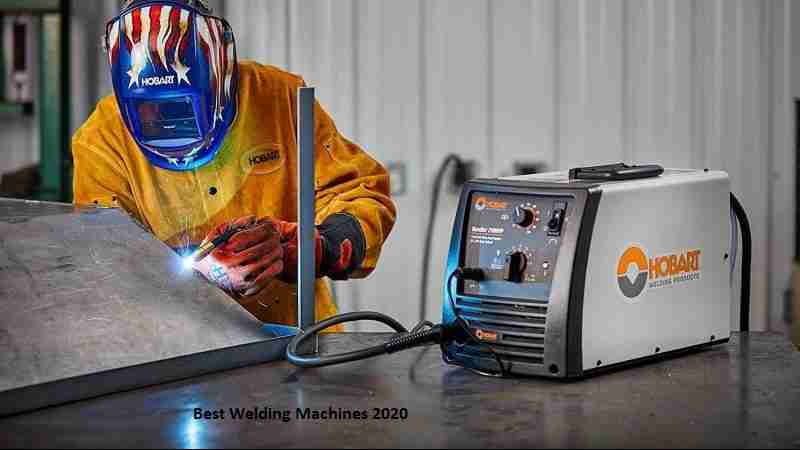If you’ve ever wondered about the earning potential of welders, this is the article for you. We’ll explore the fascinating world of welders and shed light on how much they typically earn. Whether you’re considering a career in welding or simply curious about the financial rewards, this article will provide you with all the information you need. So, buckle up and get ready to discover the intriguing world of welding salaries!
Factors Affecting Welder Salaries
When it comes to determining how much welders typically earn, there are several factors that can impact their salaries. These factors include the welder’s level of experience, educational background, specific skills, location, industry, and type of employment.
Level of Experience
One of the most significant factors affecting a welder’s salary is their level of experience. Generally, entry-level welders with minimal experience earn lower salaries compared to those who have been in the field for several years. As welders gain more experience and expertise, their earning potential tends to increase.
Educational Background
The level of education a welder has obtained can also influence their salary. While a high school diploma or equivalent is typically the minimum requirement for entry-level positions, pursuing further education can lead to higher-paying opportunities. Vocational training programs, associate degrees in welding, and bachelor’s degrees in welding engineering are all avenues that can provide welders with additional qualifications and potentially higher salaries.
Specific Skills
Different welding techniques and skills are in demand across various industries. Welders who possess specialized skills such as TIG welding, MIG welding, flux-cored arc welding, pipe welding, structural welding, or underwater welding often have a higher earning potential. These specific skills may require additional training and certification, but they can open doors to more lucrative job opportunities.
Location
The geographic location where a welder is employed can greatly impact their salary. Some states or regions may have a higher demand for welders, leading to increased wages to attract skilled workers. For example, states like Alaska, Hawaii, and North Dakota are known for offering higher pay rates for welders. It’s worth noting that the cost of living in a particular area should also be taken into account when evaluating salary offers.
Industry
The industry in which a welder works can also play a significant role in determining their salary. Different industries have varying levels of demand for skilled welders and may offer different rates of pay. Some industries known for higher-paying welding jobs include construction and manufacturing, oil and gas, aerospace, automotive, shipbuilding, and infrastructure. By specializing in an industry with a high demand for welders, individuals can potentially increase their earning potential.
Type of Employment
The type of employment a welder has can also affect their salary. Union positions often come with negotiated wage rates and may offer additional benefits such as health insurance and retirement plans. On the other hand, non-union positions may have more flexibility but may offer lower wages. Alternatively, some welders choose to work on a contract basis or are self-employed, which can provide opportunities for higher pay but also requires additional responsibilities such as finding their own clients and managing their own finances.
Average Salary Range
To better understand the earning potential of welders, it’s essential to examine the average salary range within the profession. The following sections will explore the salaries of entry-level welders, experienced welders, and certified welders.
Entry-level Welders
Entry-level welders, typically those with little to no experience, can expect to earn a lower salary compared to more experienced welders. However, their salaries can still vary depending on factors such as location, industry, and type of employment. On average, entry-level welders can make between $30,000 and $40,000 per year.
Experienced Welders
As welders gain experience and become more proficient in their craft, their earning potential tends to increase. Experienced welders who have been in the field for several years and have developed a repertoire of skills can earn significantly higher salaries. On average, experienced welders can expect to earn between $40,000 and $60,000 per year.
Certified Welders
Obtaining relevant certifications can also impact a welder’s salary. Certifications, such as those offered by the American Welding Society (AWS), validate a welder’s skills and expertise. Certified welders often have greater job opportunities and may command higher salaries compared to non-certified welders. Depending on their level of experience and specific certifications, certified welders can earn between $50,000 and $80,000 per year.
Welding Salary by Level of Experience
To gain a more detailed understanding of how experience affects welding salaries, it’s important to look at the earning potential at different career levels: entry-level, mid-level, and senior-level.
Entry-level
As mentioned earlier, entry-level welders can expect lower salaries due to their limited experience. The exact salary range for entry-level welders can vary, but on average, these individuals can earn between $15 and $20 per hour. This translates to an annual salary range of approximately $30,000 to $40,000.
Mid-level
Once welders gain several years of experience and become more proficient in their craft, they enter the mid-level career stage. Mid-level welders typically earn higher salaries compared to entry-level positions. On average, mid-level welders can earn between $20 and $30 per hour, which equates to an annual salary range of around $40,000 to $60,000.
Senior-level
Senior-level welders, who have gained extensive experience and knowledge in the field, are often in high demand. These seasoned professionals can earn top salaries due to their expertise. On average, senior-level welders can earn between $30 and $40 per hour, resulting in an annual salary range of approximately $60,000 to $80,000 or more.
Impact of Educational Background
A welder’s educational background can have a significant impact on their earning potential. Employers often value formal education and training as it demonstrates a commitment to the profession and can indicate a higher level of skill and knowledge. The following sections will explore the impact of different educational backgrounds on welding salaries.
High School Diploma or Equivalent
For entry-level welding positions, a high school diploma or its equivalent is typically the minimum educational requirement. While a diploma alone can qualify individuals for some welding jobs, it may limit their earning potential. Welders with only a high school diploma can expect to earn salaries on the lower end of the pay scale, typically ranging from $15 to $20 per hour.
Vocational Training Programs
Attending vocational training programs can provide aspiring welders with specialized knowledge and hands-on experience. These programs often focus on developing skills in specific welding techniques and may result in certifications or qualifications that enhance employability. Welders who have completed vocational training programs can expect to earn slightly higher salaries compared to those with only a high school diploma. Salaries for vocational program graduates typically range from $20 to $25 per hour.
Associate Degree in Welding
Pursuing an associate degree in welding can provide welders with a comprehensive education in the field. These degree programs often include a mix of theoretical coursework and practical training, preparing students for various welding applications and industry demands. Welders with an associate degree can command higher salaries compared to high school graduates or vocational program graduates. Salaries for welders with an associate degree usually range from $25 to $30 per hour.
Bachelor’s Degree in Welding Engineering
For those seeking advanced opportunities in welding, a bachelor’s degree in welding engineering offers a wealth of possibilities. This degree program combines engineering principles with welding techniques, allowing graduates to take on more complex projects and leadership roles. Welders with a bachelor’s degree in welding engineering are highly sought after and can earn top salaries in the profession. Salaries for individuals with a bachelor’s degree in welding engineering typically range from $30 to $40 per hour.
In-Demand Welding Skills
Having a diverse skillset can greatly impact a welder’s earning potential. Certain welding skills are in higher demand across various industries, and welders who possess these specialized skills may have more opportunities for higher-paying jobs. The following sections will explore some of the in-demand welding skills and their impact on salaries.
TIG Welding
Tungsten Inert Gas (TIG) welding, also known as Gas Tungsten Arc Welding (GTAW), is a precise welding process that requires skill, attention to detail, and steady hands. TIG welders often work with thin materials and are responsible for producing high-quality welds. Due to the specialized nature of TIG welding, welders who possess this skill are in high demand. TIG welding skills can significantly increase a welder’s earning potential, with salaries ranging from $25 to $35 per hour.
MIG Welding
Metal Inert Gas (MIG) welding, also referred to as Gas Metal Arc Welding (GMAW), is one of the most commonly used welding techniques. MIG welders utilize a wire feeding system to create welds, making it a versatile and efficient option for various applications. Welders with MIG welding skills are highly employable and typically enjoy competitive salaries. Salaries for MIG welders usually range from $20 to $30 per hour.
Flux-Cored Arc Welding
Flux-Cored Arc Welding (FCAW) is a welding process that uses a continuously fed tubular electrode filled with flux to create welds. FCAW is often preferred in outdoor or windy conditions due to its ability to produce stronger and more stable welds compared to other techniques. Welders proficient in FCAW can often find job opportunities in industries such as construction and shipbuilding. Salaries for FCAW welders typically range from $20 to $30 per hour.
Pipe Welding
Pipe welding is a specialized skill that involves welding pipes made from various materials such as steel, stainless steel, or aluminum. These welds must be strong and able to withstand high pressure and extreme conditions. Due to the demand for skilled pipe welders in industries such as oil and gas, the earning potential for these professionals is often higher. Pipe welders can expect salaries ranging from $25 to $35 per hour.
Structural Welding
Structural welding involves joining metal components to create structures like bridges, buildings, or infrastructure. As a critical aspect of construction and manufacturing industries, structural welders often have steady job opportunities. The earning potential for structural welding can vary depending on the complexity of the projects involved. Salaries for structural welders typically range from $20 to $30 per hour.
Underwater Welding
Underwater welding is a specialized field that requires welders to perform their work in water environments, often at great depths. These welders must be skilled in both welding techniques and underwater diving procedures to carry out their tasks safely and effectively. Due to the unique nature and higher risk involved in underwater welding, these professionals can command significantly higher salaries. Underwater welders often earn between $50 and $100 per hour, making it one of the most lucrative welding specialties.
Welding Salary by Location
Location can greatly impact a welder’s salary, as wages tend to vary depending on the region and state. Some states or areas may have a higher demand for welders, leading to increased wages to attract skilled workers. The following sections will explore the top paying states for welders, differences between rural and urban areas, and international variances.
Top Paying States for Welders
Several states in the United States offer higher pay rates for welders due to factors such as demand, cost of living, and industry specialization. States like Alaska, Hawaii, and North Dakota are known for offering higher salaries to attract skilled welders. Alaska, in particular, stands out as one of the top-paying states for welders, with average salaries often exceeding the national average.
Rural vs Urban Areas
Welding salaries can also vary depending on whether a welder is based in a rural or urban area. Urban areas typically have a higher concentration of job opportunities and often offer higher salaries due to increased demand and cost of living. In contrast, rural areas may have fewer job opportunities and lower cost of living, resulting in lower average salaries for welders.
International Variances
Welding salaries can also vary significantly between different countries. Factors such as the local economy, industry demand, and cost of living all contribute to these variances. Some countries, particularly those with booming industries or significant infrastructure projects, may offer higher salaries for welders. Prospective welders seeking job opportunities internationally should research and consider factors such as work visa requirements, local wage rates, and employment benefits.
Industry-specific Salary Differences
Welding salaries also differ based on the industry in which a welder works. Different industries have varying levels of demand for skilled welders and may offer different rates of pay. The following sections will explore the salary differences within the construction and manufacturing, oil and gas, aerospace, automotive, shipbuilding, and infrastructure industries.
Construction and Manufacturing
Welders involved in the construction and manufacturing industries often have a steady flow of job opportunities. The demand for structural welders, particularly those with certifications and experience, remains high. Salaries in the construction and manufacturing sectors can vary depending on the scale and complexity of the projects. Welders working in construction and manufacturing typically earn salaries within the range of $20 to $30 per hour.
Oil and Gas
The oil and gas industry is known for offering high-paying welding jobs due to the unique challenges and demands of working in this sector. Welders in the oil and gas industry often require specialized skills, such as pipe welding or underwater welding, and must adhere to strict safety regulations. These professionals are often compensated accordingly, with salaries ranging from $30 to $40 per hour.
Aerospace
Welders in the aerospace industry play a crucial role in manufacturing aircraft and spacecraft components. Meeting the high standards and precision required in this industry often demands specialized skills and meticulous attention to detail. Due to the unique demands and stringent quality requirements, aerospace welders can command higher salaries. Salaries in the aerospace industry typically range from $25 to $35 per hour.
Automotive
Welders working in the automotive industry are involved in the manufacturing and assembly of vehicles. With advancements in technology and the increasing demand for electric vehicles, the automotive industry offers various welding opportunities. The salaries for automotive welders can vary depending on factors such as the type of vehicles produced and the specific welding skills required. Salaries in the automotive industry generally range from $20 to $30 per hour.
Shipbuilding
Shipbuilders rely on skilled welders to construct and repair vessels. The shipbuilding industry encompasses both commercial ships and naval vessels, offering diverse opportunities for welders. The demand for shipbuilding welders can fluctuate depending on factors such as global shipping demands and military expenditures. Salaries in shipbuilding often range from $25 to $35 per hour, with some specialized roles commanding even higher rates.
Infrastructure
Welders involved in infrastructure projects, such as bridge construction or roadworks, are often responsible for creating strong and durable welds that withstand various weather conditions and heavy usage. The demand for infrastructure welders can vary depending on government investments and infrastructure development projects. Salaries in the infrastructure industry usually range from $20 to $30 per hour.
Welding Salary by Type of Employment
The type of employment a welder has can also affect their salary. Different employment arrangements, such as union vs. non-union positions, contract work, or self-employment, can lead to varying salary structures and benefits. The following sections will explore these different types of employment and their impact on welding salaries.
Union vs Non-Union
Some welders opt to join labor unions, which negotiate wage rates and provide additional benefits such as health insurance, retirement plans, and job protection. Union positions often offer higher wages compared to non-union positions due to collective bargaining power. On the other hand, welders who work in non-union positions may have more flexibility but typically earn lower wages.
Contract Work
Welders who work on a contract basis often have the opportunity to negotiate higher hourly rates or project-based fees. Contract work allows welders to set their rates and take on projects that align with their skills and preferences. However, it’s important to note that contract work may come with periods of unemployment or uncertain job security.
Self-Employment
Some welders choose to be self-employed, establishing their own businesses or working as freelancers. Self-employment offers the potential for higher earning potential as welders can set their rates, choose their clients, and take on projects independently. However, self-employed welders must also handle various responsibilities such as marketing, financial management, and securing their own work.
Job Outlook and Salary Trends
Understanding the job outlook and salary trends within the welding industry is essential for both aspiring welders and professionals looking to advance their careers. The following sections will examine the growing demand for skilled welders, technological advancements and the impact of automation, and industry-specific factors influencing salaries.
Growing Demand for Skilled Welders
The demand for skilled welders continues to grow, driven by various factors such as infrastructure development, maintenance and repair needs, and advancements in manufacturing processes. The construction, manufacturing, and oil and gas industries, in particular, continue to be significant sources of employment for welders.
Technological Advancements and Automation
Technological advancements and the increasing use of automation within the welding industry have the potential to impact salaries. While automation can streamline certain welding processes and increase productivity, it may also reduce the need for manual welding labor in some areas. Welders who stay up to date with industry trends and embrace technological advancements may have better opportunities and potentially higher salaries.
Industry-specific Factors
Different industries within the welding profession often experience unique factors that can influence salaries. For example, governmental infrastructure investments can lead to increased demand and job opportunities in construction-related welding. On the other hand, economic fluctuations can impact sectors such as oil and gas, resulting in shifts in employment opportunities and salaries.
Additional Benefits and Perks
In addition to their base salaries, welders may also receive additional benefits and perks as part of their employment packages. These benefits can vary depending on the company, union agreements, or individual contracts. The following sections will explore some of the common additional benefits and perks that welders may receive.
Health Insurance
Many employers offer health insurance benefits to their employees, which can include medical, dental, and vision coverage. Health insurance is an essential benefit that provides welders with access to medical care, helping them maintain their health and well-being.
Retirement Plans
Employers may offer retirement plans, such as 401(k) accounts, to help welders save for the future. These plans often involve employer contributions or matching programs, allowing welders to build their retirement savings over time.
Paid Time Off
Paid time off, including vacation days and sick leave, is a valuable benefit that provides welders with time away from work while still receiving their regular pay. Paid time off allows welders to rest, recharge, and maintain a healthy work-life balance.
Overtime Pay
Welders who work beyond their regular working hours may be eligible for overtime pay. Overtime wages often provide additional income and can significantly increase a welder’s overall earning potential. However, it’s important to be mindful of potential fatigue or burnout associated with extended working hours.
In conclusion, several factors impact the salaries of welders, including their level of experience, educational background, specific skills, location, industry, and type of employment. Welders can enhance their earning potential by gaining experience, pursuing further education, developing specialized skills in high-demand areas, and considering job opportunities in industries that offer higher salaries. It’s crucial for aspiring welders and professionals in the field to stay informed about industry trends, technological advancements, and the job outlook to make informed decisions about their career paths. With dedication and continuous skill development, welders can improve their earning potential and enjoy fulfilling careers in this vital profession.


